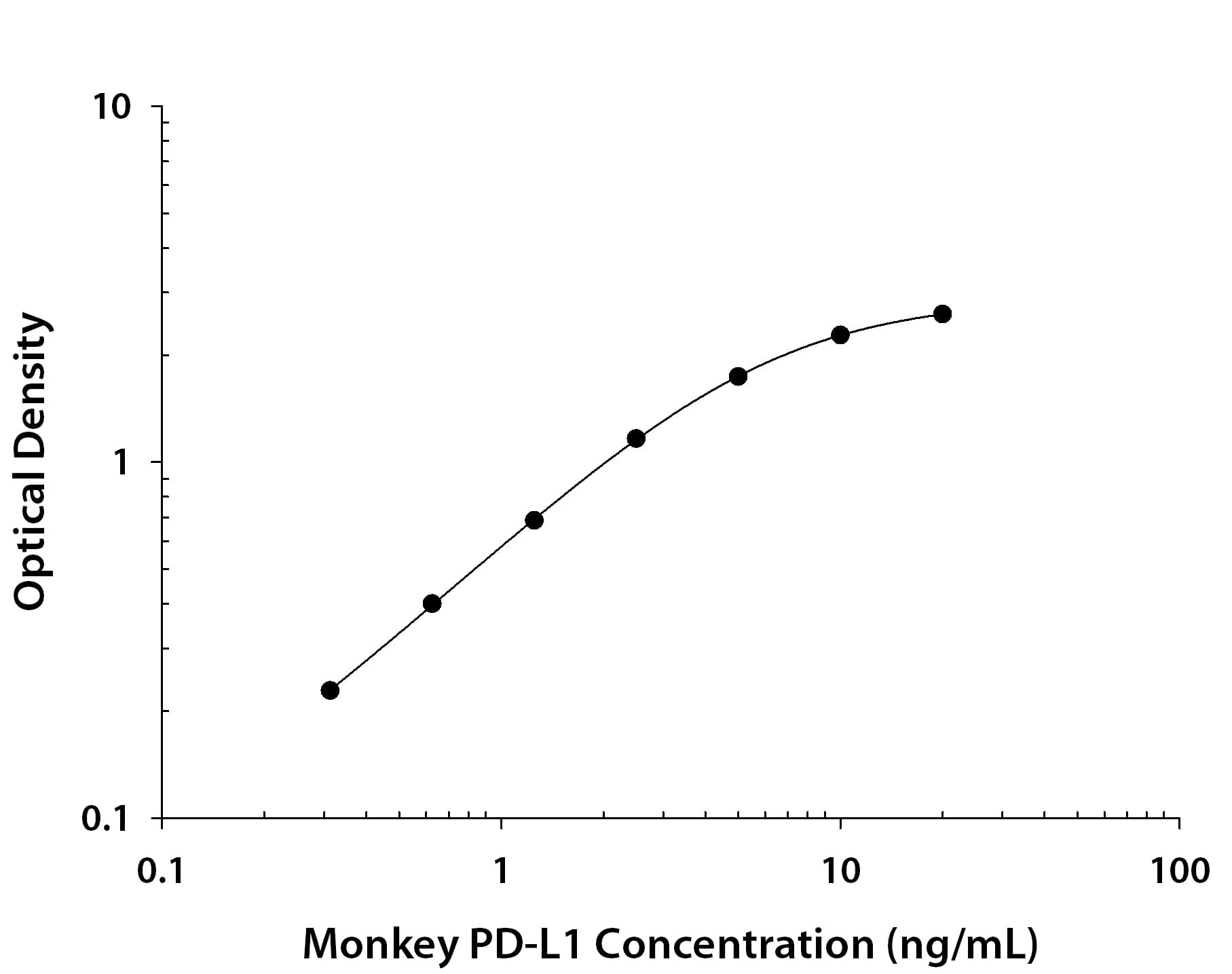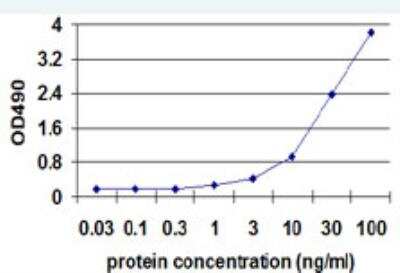PD-L1/B7-H1: ELISA Kits
PD-L1, also known as B7-H1 and CD274, is an approximately 65 kDa transmembrane glycoprotein in the B7 family of immune regulatory molecules. PD-L1 is expressed on inflammatory-activated immune cells including macrophages, T cells, and B cells, keratinocytes, endothelial and intestinal epithelial cells, as well as a variety of carcinomas and melanoma. PD-L1 protein binds to T cell B7-1/CD80 and PD-1.
It suppresses T cell activation and proliferation and induces the apoptosis of activated T cells. It plays a role in the development of immune tolerance by promoting T cell anergy and enhancing regulatory T cell development. PD-L1 favors the development of anti-inflammatory IL-10 and IL-22 producing dendritic cells and inhibits the development of Th17 cells. In cancer, PD-L1 provides resistance to T cell mediated lysis, enhances EMT, and enhances the tumorigenic function of Th22 cells. Many tumors overexpress PD-L1 protein making the PD-1:PD-L1 interaction central to several successful cancer immunotherapy approaches.
Products:
6 results for "PD-L1/B7-H1 ELISA Kits" in Products
6 results for "PD-L1/B7-H1 ELISA Kits" in Products
PD-L1/B7-H1: ELISA Kits
PD-L1, also known as B7-H1 and CD274, is an approximately 65 kDa transmembrane glycoprotein in the B7 family of immune regulatory molecules. PD-L1 is expressed on inflammatory-activated immune cells including macrophages, T cells, and B cells, keratinocytes, endothelial and intestinal epithelial cells, as well as a variety of carcinomas and melanoma. PD-L1 protein binds to T cell B7-1/CD80 and PD-1.
It suppresses T cell activation and proliferation and induces the apoptosis of activated T cells. It plays a role in the development of immune tolerance by promoting T cell anergy and enhancing regulatory T cell development. PD-L1 favors the development of anti-inflammatory IL-10 and IL-22 producing dendritic cells and inhibits the development of Th17 cells. In cancer, PD-L1 provides resistance to T cell mediated lysis, enhances EMT, and enhances the tumorigenic function of Th22 cells. Many tumors overexpress PD-L1 protein making the PD-1:PD-L1 interaction central to several successful cancer immunotherapy approaches.
Products:
| Sensitivity: | 4.52 pg/mL |
| Applications: | ELISA |
| Assay Range: | 25 - 1,600 pg/mL (Cell Culture Supernates, Cell Lysates, Serum, EDTA Plasma, Heparin Plasma, Urine) |
| Assay Range: | 156.25 - 10,000 pg/mL |
| Applications: | ELISA |
| Assay Range: | 18.8 - 1,200 pg/mL |
| Applications: | ELISA |
| Assay Range: | 0.313 - 20 ng/mL |
| Applications: | ELISA |
For use with catalog number DB7H10
| Applications: | Ctrl |
| Applications: | ELISA |






